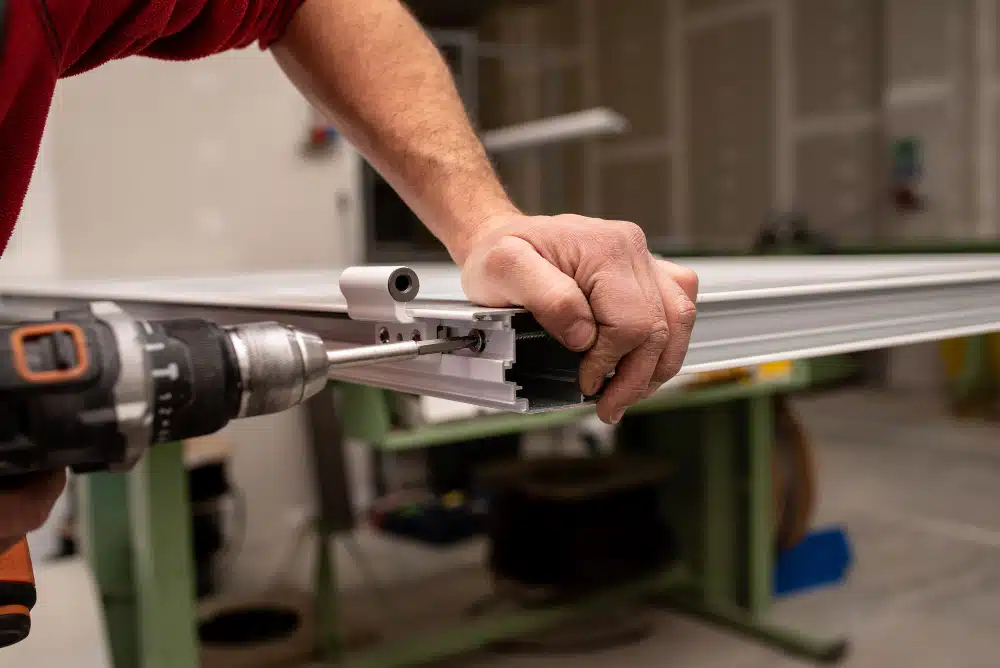Imagine walking into your home only to be greeted by a foul stench and water pooling ominously around your floors. A sewer line backup can strike without warning, turning a peaceful household into a chaotic mess. But fear not—experienced professionals know exactly how to prevent this nightmare before it starts. Skilled Plumber Las Cruces technicians deploy a combination of advanced inspections, routine maintenance, and cutting-edge equipment to ensure your pipes flow seamlessly.
From high-pressure water jetting to video camera diagnostics, these experts can identify hidden blockages, structural weaknesses, and potential failures long before they escalate into costly disasters. Homeowners often underestimate the silent threats lurking beneath their floors, but proactive measures can save thousands in repairs and preserve the health and hygiene of their living spaces.
The meticulous strategies used by Plumber Las Cruces specialists not only prevent backups but also extend the lifespan of your sewer system, offering peace of mind and uninterrupted convenience. Don’t wait until it’s too late—investing in professional prevention today means avoiding the stress, expense, and disruption of an unexpected sewer line backup tomorrow.
Understanding Sewer Line Backups
What Causes Sewer Line Backups?
Sewer line backups occur when wastewater cannot flow properly through the pipes, causing it to reverse direction and enter your home. The causes can be complex and varied:
-
Tree root intrusion: Roots can infiltrate sewer lines through small cracks, expanding and blocking the flow of water.
-
Grease accumulation: Pouring grease down the drain may seem harmless, but it solidifies over time, creating thick blockages.
-
Pipe corrosion or collapse: Aging pipes can corrode, crack, or even collapse, obstructing normal flow.
-
Flushing inappropriate materials: Items like wipes, diapers, or sanitary products can get stuck, causing severe clogs.
-
Heavy rainfall or flooding: Excess water can overwhelm sewer systems, especially in older urban areas.
Understanding these causes is the first step in prevention. Plumbers analyze the unique characteristics of your home’s plumbing system to identify vulnerabilities and implement targeted solutions.
The Role of Plumbers in Preventing Backups
Regular Inspections
One of the primary ways plumbers prevent sewer line backups is through regular inspections. Using advanced tools such as video pipe inspection cameras, plumbers can look inside pipes without excavation. This non-invasive method allows them to detect early signs of wear, blockages, or root intrusion before they escalate into serious problems.
Drain Cleaning Techniques
Routine drain cleaning is another essential preventive measure. Plumbers use various techniques depending on the severity of buildup:
-
Hydro jetting: High-pressure water streams are used to clear grease, debris, and mineral deposits from pipes, restoring optimal flow.
-
Mechanical snaking: A plumbing snake can physically break up or remove blockages within the pipe.
-
Enzyme treatments: Eco-friendly enzymes digest organic materials like grease and food particles without harming the pipes.
These methods not only prevent sewer line backups but also extend the lifespan of your plumbing system.
Pipe Replacement and Repair
Sometimes, prevention requires proactive replacement or repair. Plumbers assess the condition of your pipes and determine whether pipe lining, pipe bursting, or traditional replacement is necessary. Modern techniques such as trenchless pipe replacement reduce disruption to your property while ensuring long-lasting results.
Addressing Tree Root Intrusion
Tree roots are notorious for causing sewer line blockages. Plumbers employ specialized root-cutting tools to remove intrusions, followed by chemical treatments to prevent regrowth. Regular maintenance schedules ensure roots do not have the opportunity to compromise your sewer lines again.
Advanced Technologies in Sewer Maintenance
Plumbing has evolved significantly over the years. Today, plumbers prevent sewer line backups with cutting-edge technologies:
Video Pipe Inspection
High-definition cameras allow plumbers to see the interior of your pipes in real-time. This technology helps identify cracks, root intrusions, and buildup without invasive digging, saving both time and money.
Trenchless Repair Techniques
Traditional pipe repair often involves digging up entire yards or streets. Trenchless techniques, such as cured-in-place pipe (CIPP) lining or pipe bursting, minimize disruption while effectively repairing damaged pipes. These solutions are faster, cleaner, and increasingly popular among homeowners.
Smart Sensors and Monitoring Systems
Some modern homes now feature smart sensors installed in sewer lines. These devices monitor water flow and detect anomalies in real-time, alerting homeowners or plumbers to potential backups before they become emergencies.
Preventive Maintenance Tips from Plumbers
While professional intervention is crucial, homeowners can also take steps to minimize the risk of backups:
-
Dispose of grease properly: Avoid pouring oil or fat down the drain; instead, collect and discard it with trash.
-
Mind what you flush: Only flush human waste and toilet paper; other items can lead to blockages.
-
Regular inspection and cleaning: Schedule routine inspections and cleanings every 1–2 years, depending on your home’s plumbing age.
-
Landscape wisely: Avoid planting large trees or shrubs near sewer lines.
These simple habits, combined with professional maintenance, create a robust defense against sewer line blockages.
Common Misconceptions About Sewer Backups
“It Won’t Happen to Me”
Many homeowners believe sewer backups are rare. In reality, they can happen to anyone, especially in older homes or areas with heavy tree coverage. Ignoring small signs—slow drains, gurgling toilets, or foul odors—can lead to catastrophic backups.
“Chemical Drain Cleaners Are Enough”
Over-the-counter chemical cleaners may temporarily relieve minor clogs but often damage pipes over time. Professional plumbing services are safer, more effective, and address the root cause rather than the symptom.
“DIY Fixes Save Money”
Attempting to fix a serious blockage yourself may worsen the problem. Plumbers use specialized tools and techniques that are far beyond typical DIY solutions, ensuring long-term protection for your sewer lines.
How Plumbers Handle Emergency Backups
Despite preventive measures, emergencies can occur. Plumbers are trained to respond quickly and efficiently:
-
Assessment: They evaluate the severity of the backup and locate the source of the blockage.
-
Containment: Steps are taken to prevent further damage to your home, such as shutting off water supply.
-
Cleaning and Repair: Blockages are removed, pipes repaired, and the area sanitized.
-
Prevention Recommendations: After resolution, plumbers advise on measures to prevent future incidents.
Emergency response is a critical component of their expertise, turning potentially devastating situations into manageable repairs.
Benefits of Professional Sewer Maintenance
Hiring a professional plumber for regular maintenance offers numerous advantages:
-
Early detection of potential issues before they escalate.
-
Extended pipe lifespan through proper care and cleaning.
-
Reduced risk of health hazards caused by sewage exposure.
-
Peace of mind, knowing your plumbing system is protected.
Investing in professional plumbing services is not just a matter of convenience—it is a safeguard for your home and family.
Environmental and Health Considerations
Sewer line backups are not just a property concern—they pose serious health risks. Raw sewage contains bacteria, viruses, and other pathogens that can lead to illness. Professional plumbers follow strict protocols for cleaning and disposal, ensuring safety for both your household and the environment.
Moreover, proper sewer maintenance conserves water and reduces unnecessary strain on municipal sewage systems, contributing to environmental sustainability.
Conclusion
Preventing sewer line backups requires a combination of knowledge, technology, and proactive care. Skilled plumbers play an indispensable role, using advanced tools like video pipe inspection cameras, hydro jetting, trenchless repair methods, and smart monitoring systems to keep your sewer lines clear and functional.
Homeowners also contribute by adopting preventive habits, disposing of waste responsibly, and scheduling regular inspections. Together, these efforts protect your home, health, and wallet from the devastating consequences of sewer line blockages.
In the battle against sewer backups, the key is vigilance, expertise, and timely intervention. By understanding the causes, implementing preventive strategies, and relying on professional plumbing services, you can ensure your home remains safe, hygienic, and free from costly plumbing disasters.





